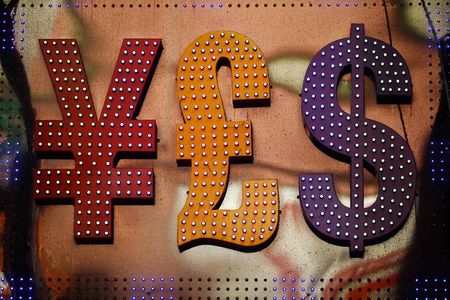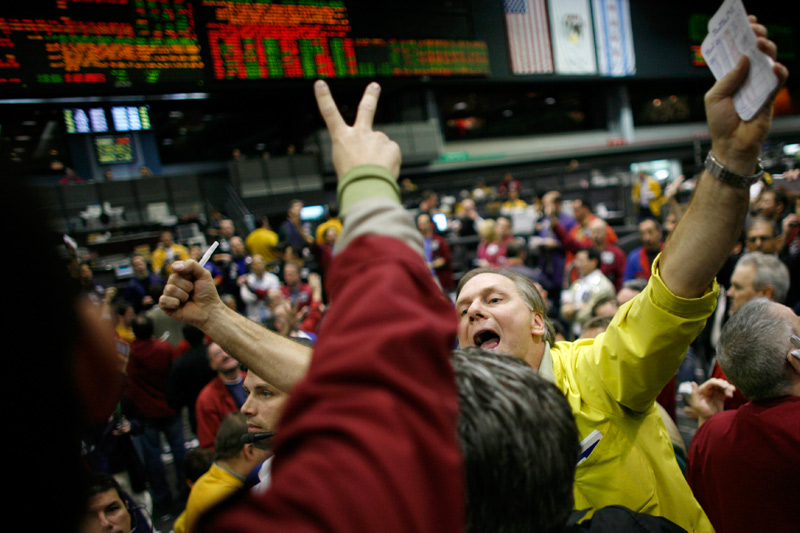By Patrick Graham
LONDON (Reuters) - Working out of a shared office near London's Euston station, Michael Kent is part of a revolution that may be driven on by this year's row over alleged currency market manipulation by major banks.
Kent's online business, Azimo, and more than 30 others in the United Kingdom are building on the success of firms like Western Union (N:WU) and MoneyGram International (O:MGI) in carving out a chunk of the market in international money transfers, travel money and card payments.
Their pitch is simple: in the era of electronic money, the 4-12 percent fees banks charge consumers for any transaction involving foreign currency is ludicrously expensive.
Today, to transfer 100 pounds to Germany, British high street bank Halifax would charge 9.5 pounds and use a rate 3.06 eurocents per pound worse than those the financial world's biggest players charge each other, totalling around 12 percent.
Halifax points to the costs of running secure, wide-ranging operations and says the percentage falls for larger amounts.
Currency market majors HSBC and Barclays charge less and costs on foreign currency transactions on credit cards often go below 5 percent, but the fee at Azimo is 1 pound, the spread less than 1 cent, and the overall cost less than 2 percent.
"This is money that the banks do not need to charge people and we just set out to change that," says Kent. "We are in the middle of a worldwide downturn and these people are making supernormal profits. It is money people do not need to pay."
REPLAY
Azimo's original raison d'etre was to reduce the cost for migrant workers of sending money home by streamlining the sort of service Western Union or Moneygram International were already providing at cheaper rates than western banks.
Across London, in trendy e-business hub Shoreditch, market veterans Brian Jamieson and Daniel Butcher are seeking to take the game one stage further with another start-up, Centtrip.
As financial markets went electronic in the 1990s, they were among entrepreneurs making the most of the large spreads banks charged companies for day-to-day currency purchases.
Such firms helped drive corporate costs over interbank rates down from several cents to a few pips, or hundredths of a cent. Centtrip is now seeking to do the same for ordinary consumers.
Customers sign up online, get sent a Mastercard and pay into it at a cost of 0.5 percent. They can then use the card for 14 currencies, with a spread of just 4 hundredths of a eurocent to interbank rates, compared to Halifax's 3 whole eurocents.
Centtrip's initial target is business travellers, but Jamieson says it could take just five years for a mass audience of smart-phone users to clock on to the model.
One key ingredient, he says, is convincing households their money is as safe with small web-based firms as with their bank.
"After what happened in 2008, we've got to the point where we have lost trust and faith in the banks," he says. "That has opened up the door for people like us to disrupt the market."
Since the global financial crisis laid bare excessive risk-taking at banks, their reputation has suffered further from allegations traders fleeced their biggest clients by manipulating foreign exchange rates, though there is no suggestion of any manipulation of retail rates.
UNDER THE RADAR
Banks do not break out their retail forex business in their results and there are no overall figures for the sector, but official data shows Britons spent $23.6 billion while on business and holiday trips abroad last year.
Numbers from the Bank of International Settlements show global flows worth $78 billion a day through retail foreign exchange brokers, and $188 billion a day in flows from companies outside the financial sector, although much of that is from big multinationals going through their banks.
"If travel money is billions then the market in these ordinary bank transfers will be at least 100 times that," says Ian Strafford-Taylor, chief executive of one of the earliest players in the consumer space, FairFX.
FairFX is worth just under 40 million pounds according to its listing on London's AIM market, and made almost 3 million pounds on revenues of more than 300 million last year.
The relative size of the newcomers shows there is some way to go. Eesha Mohindra, analyst at consumer finance website Moneysavingexpert.com, said more transparency was needed. "Without knowing it, most people waste big money when spending cash abroad by using the wrong card," she said.
A handful of senior bank managers who spoke to Reuters on condition of anonymity said the challenge to them in the retail segment was under serious consideration for the first time, but it was not yet considered big enough to force widespread change in a market seen as more lucrative even than the United States.
"Clearly some of the banks still see this as a captive client base and it is coming closer to that point where these sort of nimble startups will force us to change," said the head of electronic trading with one large European bank.

"Banks are already investing in some of these companies. Then when they see that they are really succeeding, they will buy some of them out."
(Editing by Philippa Fletcher)
